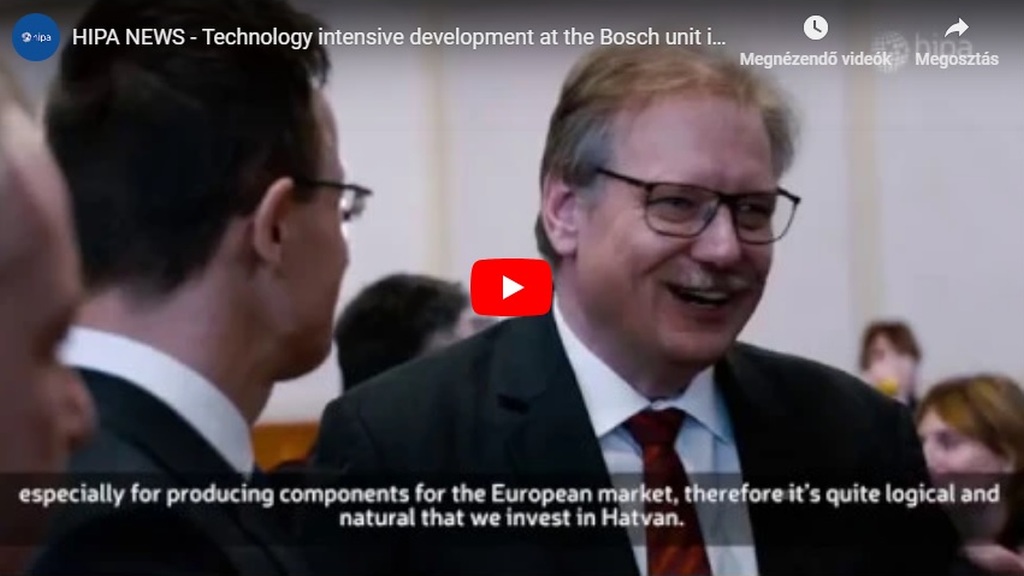
A technology intensive development is to be launched at the Bosch unit in Hatvan - VIDEO REPORT
2019. 02. 28.

A technology intensive development worth of more than EUR 30 million will be launched in the Hatvan vehicle electronics manufacturing unit of the Bosch Group, which will result in a major increase in the production volume. Thanks to the development, the range of products manufactured in this factory will be extended by further products suitable for supporting the electric and automated driving mobility solutions of the future.
Bosch Group is a market leading global supplier of diverse technologies and services. The group is active in four business areas: mobility solutions, industrial technology, consumer goods, and energy and building technology. It has approximately 410,000 employees worldwide, 69,500 of whom are active in research and development, as the company's innovative power is the base of its future growth.
Bosch has been present in Hungary since 1899. The 120 years that passed saw its development to a significant corporation, a major foreign employer in Hungarian industry. Nine subsidiaries of the Hungarian Bosch group currently employ more than 13,500 people. The retail and service network of the various manufacturing, commercial, and development units covers the entire country, and Bosch's European logistics centre is also located in Hungary.
Nowadays more than 5,500 employees take part in shaping the way vehicles will be driven in the future in the vehicle electronics factory unit located in Hatvan, which was founded in 1998. The electronic components – electronic controls and sensors manufactured for steering systems and radar systems – manufactured in this factory unit will contribute to the implementation of a secure, energy-efficient and connected mobility vision of automated driving to a great extent.
The current technology intensive investment in a value of EUR 30 million is aimed at extending the capacities and will serve for launching the manufacturing of new generation products that will have a decisive role primarily in the field of completely electrified and hybrid vehicles. Such is, for example, the electric steering control unit that will replace the hydraulic assistant steering systems in electrified vehicles. The output volume of manufactured products will be increased considerably, thanks, among others, to the fact that state-of-the-art manufacturing and testing equipment and conveyor belts will be purchased and commissioned for the manufacturing lines.
Related articles
Sector articles
On the 15th anniversary of Stadler’s Szolnok facility, the first aluminum double-decker car body produced in Jász-Nagykun-Szolnok County was unveiled. This milestone was achieved as part of an EUR 45.2 million investment launched in 2023, enabling the Szolnok pl...
2025. 01. 17.
Automotive #AutomotiveFeintool, a Swiss-owned leader in precision electrical steel and formed steel components manufacturing, is investing EUR 34.1 million to expand its Tokod facility in Hungary’s Esztergom district. The project will add 6,740 square meters to the existing plant, wi...
2024. 12. 17.
Automotive #AutomotiveChinese electric car manufacturer BYD first Hungarian Suppliers' Forum in Budapest attracted more than hundred domestic companies. At the two-day event, organised by HIPA Hungarian Investment Promotion Agency, Minister of Foreign Affairs and Trade Péter Szijjárt...
2024. 10. 16.
Automotive #Automotive